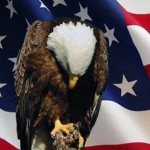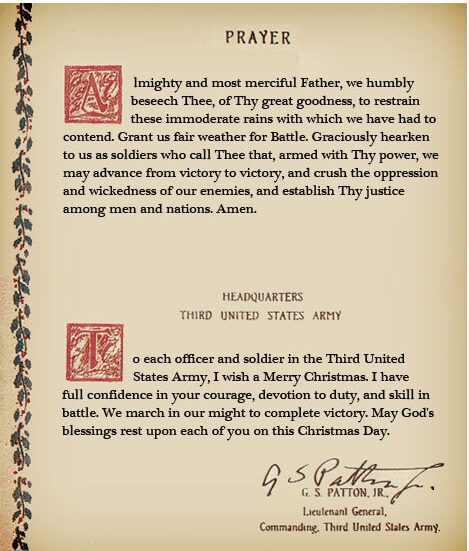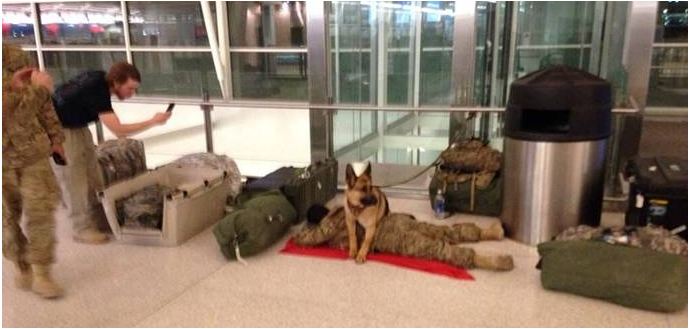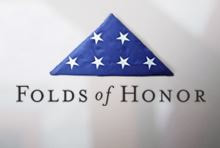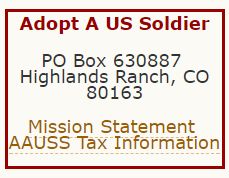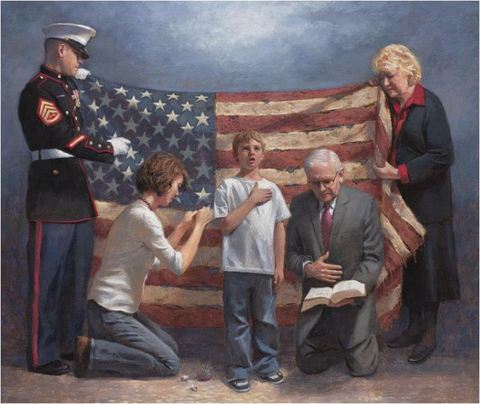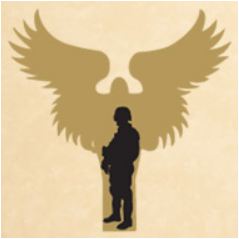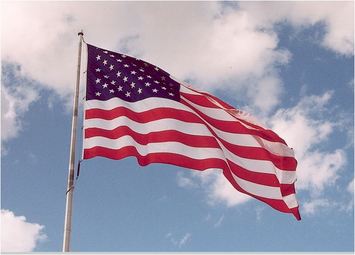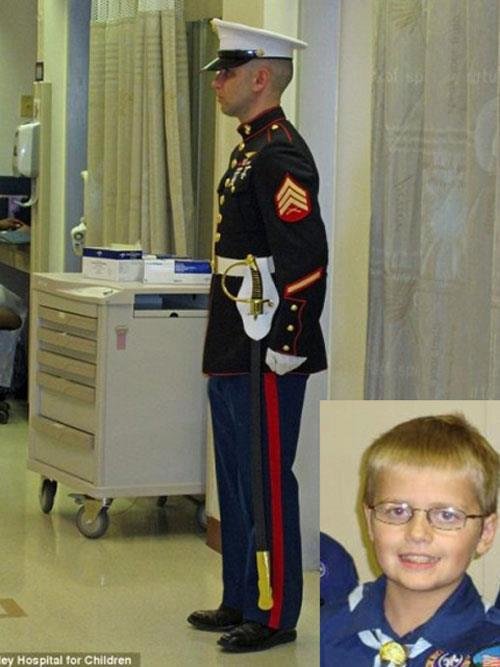Remembering the brave men and women who gave their “last full measure of devotion” for our freedoms, requires us to take a moment every day, not just on Memorial Day to focus on the individuals behind the numbers and remember they are not just names on a wall.
“Greater love has no one than this, that one lay down his life for his friends”. - John 15:13
“Greater love has no one than this, that one lay down his life for his friends”. - John 15:13
A HERO: “down these mean streets a man must go who is not himself mean, who is neither tarnished nor afraid. He is the hero; he is everything. He must be a complete man and a common man and yet an unusual man. He must be, to use a rather weathered phrase, a man of honor—by instinct, by inevitability, without thought of it, and certainly without saying it. He must be the best man in his world and a good enough man for any world. - Raymond Chandler
During the holiday season of 1944, Gen. Patton’s Third Army was bogged down in their advance against the Germans. Patton was bogged down as he was trying to reach Bastogne, a town in southern Belgium that held by 15,000 American troops but encircled by over 50,000 Nazi soldiers bearing down on it.
Unfortunately, due to the weather, Gen. Patton didn’t have the air cover he needed to relieve the 15,000 brave American troops holding off the Germans.
That’s when he decided to rely on the power of prayer.Patton had Chaplain Fr. James O’Neill compose a card to be distributed to each one of the 250,000 troops under his command in the Third Army, and had all of the men pray this simple prayer:
And it worked. The next day, the weather cleared, Patton’s Third Army made its way into Bastogne to relieve the 101st Airborne, stymie the Nazis, and … well, you know the rest.
Unfortunately, due to the weather, Gen. Patton didn’t have the air cover he needed to relieve the 15,000 brave American troops holding off the Germans.
That’s when he decided to rely on the power of prayer.Patton had Chaplain Fr. James O’Neill compose a card to be distributed to each one of the 250,000 troops under his command in the Third Army, and had all of the men pray this simple prayer:
And it worked. The next day, the weather cleared, Patton’s Third Army made its way into Bastogne to relieve the 101st Airborne, stymie the Nazis, and … well, you know the rest.
Benghazi - The Truth!
Why Benghazi Went Bad
Ambassador Stevens was sent to Benghazi to secretly retrieve US made Stinger Missiles that the State Dept had supplied to Ansar al Sharia in Libya WITHOUT Congressional oversight or permission. Sec State Hillary Clinton had brokered the Libya deal through Ambassador Stevens and a Private Arms Dealer named Marc Turi, but some of the shoulder fired Stinger Missiles ended up in Afghanistan where they were used against our own military. On July 25th, 2012, a US Chinook helicopter was downed by one of them. Not destroyed only because the idiot Taliban didn’t arm the missile. The helicopter didn’t explode, but it had to land and an ordnance team recovered the missile’s serial number which led back to a cache of Stinger Missiles kept in Qatar by the CIA. Obama and Hillary were in full panic mode, so Ambassador Stevens was sent to Benghazi to retrieve the rest of the Stinger Missiles. This was a “do-or-die” mission, which explains the Stand Down Orders given to multiple rescue teams during the siege of the US Embassy.
Ambassador Stevens was sent to Benghazi to secretly retrieve US made Stinger Missiles that the State Dept had supplied to Ansar al Sharia in Libya WITHOUT Congressional oversight or permission. Sec State Hillary Clinton had brokered the Libya deal through Ambassador Stevens and a Private Arms Dealer named Marc Turi, but some of the shoulder fired Stinger Missiles ended up in Afghanistan where they were used against our own military. On July 25th, 2012, a US Chinook helicopter was downed by one of them. Not destroyed only because the idiot Taliban didn’t arm the missile. The helicopter didn’t explode, but it had to land and an ordnance team recovered the missile’s serial number which led back to a cache of Stinger Missiles kept in Qatar by the CIA. Obama and Hillary were in full panic mode, so Ambassador Stevens was sent to Benghazi to retrieve the rest of the Stinger Missiles. This was a “do-or-die” mission, which explains the Stand Down Orders given to multiple rescue teams during the siege of the US Embassy.
Your browser does not support viewing this document. Click here to download the document.
CANNINE HERO'S
|
|
|
|
|
|
Former Navy SEAL Marcus Luttrell has been making the rounds promoting the movie “Lone Survivor,” a personal account of the failed SEAL Team 10 mission to capture or kill a notorious Taliban leader in Afghanistan. During an interview with CNN’s Jake Tapper, however, things got pretty tense.
(This editor understands Jake Trapper's statements as I have felt the same thing many times. I understand Marcus' feelings because he is doing what he was trained for also and his country gave them an order. ). But since the "Lone Survivor" event we have had Extortion 17 and Benghazi and still no one held accountable to the massive deaths of our soldiers. For them to be fighting to protect this country and her people is one thing, but to to send them into danger into a hopelessly dangerous position without proper planning, protection or reasons not to mention deliberate holding back of assistance to these very soldiers is a legacy of shame this country will carry into infamy. This is not lack of appreciation for what our soldiers do - it is the total lack of respect for the people who put them into these positions without support and backup. War is one thing - deliberate murder is another. |
|
|
|
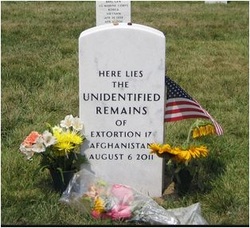
CONGRESS: STEALING THEIR PENSIONS NOT ENOUGH, WE HAVE TO ROB THEIR
GRAVES AS WELL!
In an almost unbelievable vote, on December 11, Congress voted 398-1 to deny veterans their burial based on a determination by the VA of "believed" criminal activity and even voted to dig up one veteran from his GRAVE!
WHAT IN THE WORLD IS GOING ON IN DC?!!?
From Justin Amash, the ONE SANE vote in this Congress:
To put this in perspective: How horrible would it be to be called before the VA (not a court of law) to defend your deceased great-grandfather against an *alleged* crime that took place decades—perhaps a century—ago? And if you lose or are just unable to muster a defense, to see his grave dug up?
Here is the roll call, but with only 1 NO vote, figuring out WHO voted for it shouldn't be hard...
http://clerk.house.gov/evs/2013/roll634.xml
S 1471, which authorizes the Department of Veterans Affairs (VA) to reconsider and revoke veterans' burials at national cemeteries. As written, this bill erodes the rights of all veterans and their families.Under current law, almost all veterans are eligible for burial in a national cemetery. Veterans become ineligible for burial if they've been convicted of certain serious crimes or if the VA *believes* the veteran has committed such a crime and makes that determination *before* the veteran is buried. This bill authorizes the VA to reconsider its eligibility determination *after* the veteran has been buried (i.e., it authorizes the VA to dig up veterans' remains).The bill has two major issues.
First, the bill applies to future burials and not past burials except for one, and only one, man whom the bill singles out by name. The bill orders the VA to dig up this one man and specifically strips his family, and only his family, of their appeal rights. Art. I, Sec. 9, cl. 3, of the U.S. Constitution prohibits Congress from passing bills of attainder (laws that single out an individual or group for punishment), and the Rule of Law requires that legislation be of general, not specific, applicability.
This problem could have been easily avoided by making the bill apply retroactively to *everyone* and simply placing a time limit on the VA's ability to reconsider its prior decisions.Second, the bill threatens the burial rights of *all* veterans going forward.
Because it includes no statute of limitations, the bill raises the real possibility of re-arguing very old alleged crimes about veterans who have been buried for tens or perhaps hundreds of years, when the veteran and the veteran's immediate family aren't around to defend him or her, and when the decider isn't a court bound by criminal due process.
In other words, the bill endangers the grave of every veteran who will be buried in a national cemetery from now on—no matter how much time passes after a veteran's death and the alleged wrongdoing.
GRAVES AS WELL!
In an almost unbelievable vote, on December 11, Congress voted 398-1 to deny veterans their burial based on a determination by the VA of "believed" criminal activity and even voted to dig up one veteran from his GRAVE!
WHAT IN THE WORLD IS GOING ON IN DC?!!?
From Justin Amash, the ONE SANE vote in this Congress:
To put this in perspective: How horrible would it be to be called before the VA (not a court of law) to defend your deceased great-grandfather against an *alleged* crime that took place decades—perhaps a century—ago? And if you lose or are just unable to muster a defense, to see his grave dug up?
Here is the roll call, but with only 1 NO vote, figuring out WHO voted for it shouldn't be hard...
http://clerk.house.gov/evs/2013/roll634.xml
S 1471, which authorizes the Department of Veterans Affairs (VA) to reconsider and revoke veterans' burials at national cemeteries. As written, this bill erodes the rights of all veterans and their families.Under current law, almost all veterans are eligible for burial in a national cemetery. Veterans become ineligible for burial if they've been convicted of certain serious crimes or if the VA *believes* the veteran has committed such a crime and makes that determination *before* the veteran is buried. This bill authorizes the VA to reconsider its eligibility determination *after* the veteran has been buried (i.e., it authorizes the VA to dig up veterans' remains).The bill has two major issues.
First, the bill applies to future burials and not past burials except for one, and only one, man whom the bill singles out by name. The bill orders the VA to dig up this one man and specifically strips his family, and only his family, of their appeal rights. Art. I, Sec. 9, cl. 3, of the U.S. Constitution prohibits Congress from passing bills of attainder (laws that single out an individual or group for punishment), and the Rule of Law requires that legislation be of general, not specific, applicability.
This problem could have been easily avoided by making the bill apply retroactively to *everyone* and simply placing a time limit on the VA's ability to reconsider its prior decisions.Second, the bill threatens the burial rights of *all* veterans going forward.
Because it includes no statute of limitations, the bill raises the real possibility of re-arguing very old alleged crimes about veterans who have been buried for tens or perhaps hundreds of years, when the veteran and the veteran's immediate family aren't around to defend him or her, and when the decider isn't a court bound by criminal due process.
In other words, the bill endangers the grave of every veteran who will be buried in a national cemetery from now on—no matter how much time passes after a veteran's death and the alleged wrongdoing.
Obama Knew Benghazi Would Be Attacked
By Onan Coca / 30 October 2013
You have to give it to CBS. On Benghazi, they are the network holding the Obama administration’s feet to the fire. At some point, Americans will have to begin to realize that there is a scandal hiding in all of the BS that the Obama administration has been peddling about the 9-11 Benghazi attack and its aftermath. Just this past weekend, CBS ran an explosive report providing first-hand accounts that the White House and the State Department (headed by Hillary Clinton) knew full well that the Benghazi attack was indeed an al-Qaeda orchestrated attack right from the start. Even more damning – there is new evidence that shows they were expecting this attack for months! READ MORE |
Benghazi September 11, 2012
|
AMERICAN HERO'S NOT FORGOTTEN!
|
STAFF SERGEANT RECKLESS - USA!
|
|
|
|
REMEMBERING
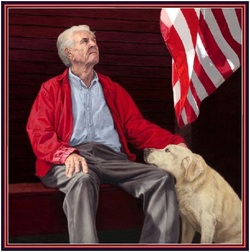
Flags
The placing of American Flags on the graves began with the Boy Scouts at The Jefferson Barracks National Cemetery in 1951. Later, the 3rd U.S. Infantry would place flags on the graves of the fallen at Arlington and maintain a constant vigilance to ensure the flags never falter. Nationally, American Flags will be raised and flown at half-mast until noon in remembrance and raised to full mast for the remainder of the day.
Tradition
Traditional observance has diminished somewhat over the years; far too many Americans have become complacent about remembering what made us and kept us free. Many of the graves of the fallen are being ignored, and most people don’t know the meaning of the flag being flown at half-mast. Outside of many military communities, the fallen are forgotten until the war-fighters are needed to fend off another threat to our nation. Soon after, however, people forget our war dead once again.
The placing of American Flags on the graves began with the Boy Scouts at The Jefferson Barracks National Cemetery in 1951. Later, the 3rd U.S. Infantry would place flags on the graves of the fallen at Arlington and maintain a constant vigilance to ensure the flags never falter. Nationally, American Flags will be raised and flown at half-mast until noon in remembrance and raised to full mast for the remainder of the day.
Tradition
Traditional observance has diminished somewhat over the years; far too many Americans have become complacent about remembering what made us and kept us free. Many of the graves of the fallen are being ignored, and most people don’t know the meaning of the flag being flown at half-mast. Outside of many military communities, the fallen are forgotten until the war-fighters are needed to fend off another threat to our nation. Soon after, however, people forget our war dead once again.
HONOR COMES FOR MANY IN SO
MANY DIFFERENT WAYS!
|
Cody Green was a 12-year boy in Indiana who was diagnosed with leukemia at 22 months old. He loved the Marines, and his parents said he drew strength and courage from the Marine Corps. He had bravely fought the battle of Leukemia into remission three times. Although he was cancer-free at the time, the chemotherapy had lowered his immune system and he developed a fungal infection that attacked his brain. Then as he struggled to fend off the infection in the hospital, the Marines wanted to show how much they respected his will to live, his strength, honor and courage. |
They presented Cody with Marine navigator wings and named him an honorary member of the United States Marine Corps.
For one Marine, that wasn't enough ... so that night, before Cody Green passed away, he took it upon himself to stand guard at Cody's hospital door all night long, 8 hours straight.
Nowhere on the face of this planet is there a country so blessed as we to have men and women such as this. I wish I could personally tell this Marine how proud I am of him and how proud he makes me to be an American!!!
For one Marine, that wasn't enough ... so that night, before Cody Green passed away, he took it upon himself to stand guard at Cody's hospital door all night long, 8 hours straight.
Nowhere on the face of this planet is there a country so blessed as we to have men and women such as this. I wish I could personally tell this Marine how proud I am of him and how proud he makes me to be an American!!!
THE CREDIT SHOULD ALWAYS BE THEIR'S - THEY FOUGHT AND/OR DIED FOR US!
CEMETERY WATCHMAN
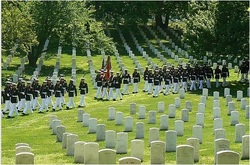
My friend Kevin and I are volunteers at a National cemetery in Oklahoma and put in a few days a month in a 'slightly larger' uniform.
Today had been a long, long day and I just wanted to get the day over with and go down to Smokey's and have a cold one. Sneaking a look at my watch, I saw the time, 16:55. Five minutes to go before the cemetery gates are closed for the day. Full dress was hot in the August sun. Oklahoma summertime was as bad as ever--the heat and humidity at the same level--both too high.
I saw the car pull into the drive, '69 or '70 model Cadillac Deville, looked factory-new. It pulled into the parking lot at a snail's pace. An old woman got out so slow I thought she was paralyzed; she had a cane and a sheaf of flowers--about four or five bunches as best I could tell.
I couldn't help myself. The thought came unwanted, and left a slightly bitter taste: 'She's going to spend an hour, and for this old soldier, my hip hurts like hell and I'm ready to get out of here right now!' But for this day, my duty was to assist anyone coming in.
Kevin would lock the 'In' gate and if I could hurry the old biddy along, we might make it to Smokey's in time.
I broke post attention. My hip made gritty noises when I took the first step and the pain went up a notch. I must have made a real military sight: middle-aged man with a small pot gut and half a limp, in marine full-dress uniform, which had lost its razor crease about thirty minutes after I began the watch at the cemetery.
I stopped in front of her, halfway up the walk. She looked up at me with an old woman's squint.
'Ma'am, may I assist you in any way?' She took long enough to answer. 'Yes, son. Can you carry these flowers? I seem to be moving a tad slow these days.'
'My pleasure, ma'am..' (Well, it wasn't too much of a lie.) She looked again 'Marine, where were you stationed?' ' Vietnam , ma'am. Ground-pounder. '69 to '71.' She looked at me closer. 'Wounded in action, I see. Well done, Marine. I'll be as quick as I can.'
I lied a little bigger: 'No hurry, ma'am.'
She smiled and winked at me. 'Son, I'm 85-years-old and I can tell a lie from a long way off. Let's get this done. Might be the last time I can do this. My name's Joanne Wieserman, and I've a few Marines I'd like to see one more time. 'Yes, ma 'am. At your service.'
She headed for the World War I section, stopping at a stone. She picked one of the flower bunches out of my arm and laid it on top of the stone. She murmured something I couldn't quite make out. The name on the marble was Donald S. Davidson, USMC: France 1918.
She turned away and made a straight line for the World War II section, stopping at one stone. I saw a tear slowly tracking its way down her cheek. She put a bunch on a stone; the name was Stephen X. Davidson, USMC, 1943.
She went up the row a ways and laid another bunch on a stone, Stanley J. Wieserman, USMC, 1944.
She paused for a second and more tears flowed. 'Two more, son, and we'll be done'
I almost didn't say anything, but, 'Yes, ma'am. Take your time.'
She looked confused.. 'Where's the Vietnam section, son? I seem to have lost my way.'
I pointed with my chin. 'That way, ma'am.'
'Oh!' she chuckled quietly. 'Son, me and old age ain't too friendly.
She headed down the walk I'd pointed at. She stopped at a couple of stones before she found the ones she wanted. She placed a bunch on Larry Wieserman, USMC, 1968, and the last on Darrel Wieserman, USMC, 1970. She stood there and murmured a few words I still couldn't make out and more tears flowed.
'OK, son, I'm finished. Get me back to my car and you can go home.'
Yes, ma'am. If I may ask, were those your kinfolk?'
She paused. 'Yes, Donald Davidson was my father, Stephen was my uncle, Stanley was my husband, Larry and Darrel were our sons. All killed in action, all Marines.'
She stopped talking. Whether she had finished, or couldn't finish, I don't know. She made her way to her car, slowly and painfully.
I waited for a polite distance to come between us and then double-timed it over to Kevin, waiting by the car.
'Get to the 'Out' gate quick.. I have something I've got to do.'
Kevin started to say something, but saw the look I gave him. He broke the rules to get us there down the service road fast. We beat her. She hadn't made it around the rotunda yet.
'Kevin, stand at attention next to the gatepost. Follow my lead.' I humped it across the drive to the other post.
When the Cadillac came puttering around from the hedges and began the short straight traverse to the gate, I called in my best gunny's voice: 'TehenHut! Present Haaaarms!' I have to hand it to Kevin; he never blinked an eye--full dress attention and a salute that would make his Dad proud.
She drove through that gate with two old worn-out soldiers giving her a send-off she deserved, for service rendered to her country, and for knowing duty, honor and sacrifice far beyond the realm of most. I am not sure, but I think I saw a salute returned from that Cadillac.
Instead of 'The End,' just think of 'Taps.'
As a final thought on my part, let me share a favorite prayer: 'Lord, keep our servicemen and women safe, whether they serve at home or overseas. Hold them in your loving hands and protect them as they protect us.' Let's all keep those currently serving and those who have gone before in our thoughts and prayers. They are the reason for the many freedoms we enjoy.
'In God We Trust.'
Today had been a long, long day and I just wanted to get the day over with and go down to Smokey's and have a cold one. Sneaking a look at my watch, I saw the time, 16:55. Five minutes to go before the cemetery gates are closed for the day. Full dress was hot in the August sun. Oklahoma summertime was as bad as ever--the heat and humidity at the same level--both too high.
I saw the car pull into the drive, '69 or '70 model Cadillac Deville, looked factory-new. It pulled into the parking lot at a snail's pace. An old woman got out so slow I thought she was paralyzed; she had a cane and a sheaf of flowers--about four or five bunches as best I could tell.
I couldn't help myself. The thought came unwanted, and left a slightly bitter taste: 'She's going to spend an hour, and for this old soldier, my hip hurts like hell and I'm ready to get out of here right now!' But for this day, my duty was to assist anyone coming in.
Kevin would lock the 'In' gate and if I could hurry the old biddy along, we might make it to Smokey's in time.
I broke post attention. My hip made gritty noises when I took the first step and the pain went up a notch. I must have made a real military sight: middle-aged man with a small pot gut and half a limp, in marine full-dress uniform, which had lost its razor crease about thirty minutes after I began the watch at the cemetery.
I stopped in front of her, halfway up the walk. She looked up at me with an old woman's squint.
'Ma'am, may I assist you in any way?' She took long enough to answer. 'Yes, son. Can you carry these flowers? I seem to be moving a tad slow these days.'
'My pleasure, ma'am..' (Well, it wasn't too much of a lie.) She looked again 'Marine, where were you stationed?' ' Vietnam , ma'am. Ground-pounder. '69 to '71.' She looked at me closer. 'Wounded in action, I see. Well done, Marine. I'll be as quick as I can.'
I lied a little bigger: 'No hurry, ma'am.'
She smiled and winked at me. 'Son, I'm 85-years-old and I can tell a lie from a long way off. Let's get this done. Might be the last time I can do this. My name's Joanne Wieserman, and I've a few Marines I'd like to see one more time. 'Yes, ma 'am. At your service.'
She headed for the World War I section, stopping at a stone. She picked one of the flower bunches out of my arm and laid it on top of the stone. She murmured something I couldn't quite make out. The name on the marble was Donald S. Davidson, USMC: France 1918.
She turned away and made a straight line for the World War II section, stopping at one stone. I saw a tear slowly tracking its way down her cheek. She put a bunch on a stone; the name was Stephen X. Davidson, USMC, 1943.
She went up the row a ways and laid another bunch on a stone, Stanley J. Wieserman, USMC, 1944.
She paused for a second and more tears flowed. 'Two more, son, and we'll be done'
I almost didn't say anything, but, 'Yes, ma'am. Take your time.'
She looked confused.. 'Where's the Vietnam section, son? I seem to have lost my way.'
I pointed with my chin. 'That way, ma'am.'
'Oh!' she chuckled quietly. 'Son, me and old age ain't too friendly.
She headed down the walk I'd pointed at. She stopped at a couple of stones before she found the ones she wanted. She placed a bunch on Larry Wieserman, USMC, 1968, and the last on Darrel Wieserman, USMC, 1970. She stood there and murmured a few words I still couldn't make out and more tears flowed.
'OK, son, I'm finished. Get me back to my car and you can go home.'
Yes, ma'am. If I may ask, were those your kinfolk?'
She paused. 'Yes, Donald Davidson was my father, Stephen was my uncle, Stanley was my husband, Larry and Darrel were our sons. All killed in action, all Marines.'
She stopped talking. Whether she had finished, or couldn't finish, I don't know. She made her way to her car, slowly and painfully.
I waited for a polite distance to come between us and then double-timed it over to Kevin, waiting by the car.
'Get to the 'Out' gate quick.. I have something I've got to do.'
Kevin started to say something, but saw the look I gave him. He broke the rules to get us there down the service road fast. We beat her. She hadn't made it around the rotunda yet.
'Kevin, stand at attention next to the gatepost. Follow my lead.' I humped it across the drive to the other post.
When the Cadillac came puttering around from the hedges and began the short straight traverse to the gate, I called in my best gunny's voice: 'TehenHut! Present Haaaarms!' I have to hand it to Kevin; he never blinked an eye--full dress attention and a salute that would make his Dad proud.
She drove through that gate with two old worn-out soldiers giving her a send-off she deserved, for service rendered to her country, and for knowing duty, honor and sacrifice far beyond the realm of most. I am not sure, but I think I saw a salute returned from that Cadillac.
Instead of 'The End,' just think of 'Taps.'
As a final thought on my part, let me share a favorite prayer: 'Lord, keep our servicemen and women safe, whether they serve at home or overseas. Hold them in your loving hands and protect them as they protect us.' Let's all keep those currently serving and those who have gone before in our thoughts and prayers. They are the reason for the many freedoms we enjoy.
'In God We Trust.'

